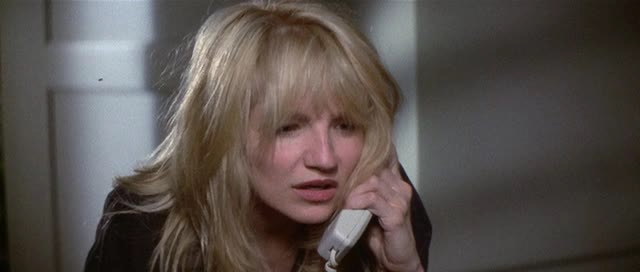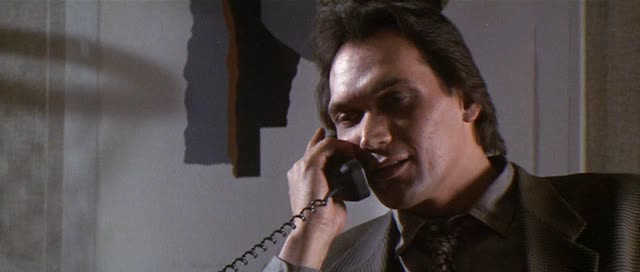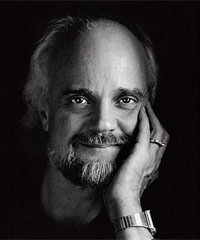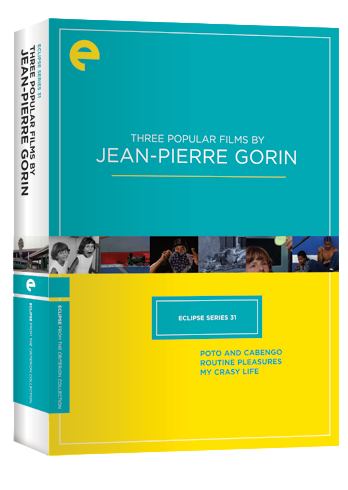From the Chicago Reader (May 17, 1991). — J.R.

SWITCH
* (Has redeeming facet)
Directed and written by Blake Edwards
With Ellen Barkin, Jimmy Smits, JoBeth Williams, Lorraine Bracco, Tony Roberts, Perry King, Lysette Anthony, and Victoria Mahoney.

In a review of Blake Edwards’s S.O.B. ten years ago, I was skeptical enough about his reputation as a trenchant social satirist that I called him the Perry Como of slapstick. Stylistically I think the comparison still holds — Switch, Edwards’s latest comedy, bears it out with a grim vengeance — but thematically the description may do Edwards’s work less than full justice. However Hollywood-style and boringly upscale the mid-life crises of the self-regarding womanizers in 10, S.O.B., The Man Who Loved Women, and Skin Deep may be, these are still troubled and neurotic movies; not for nothing did Edwards assign partial script credit to his own psychiatrist in The Man Who Loved Women.

I’m not saying that this element of disturbance makes Edwards a better writer or director, only that it gives him certain characteristics that belie the Perry Como comparison, including a taste for the grotesque and a penchant for self-analysis. Victor/Victoria and That’s Life! show a certain sweetness in dealing with middle-aged characters, and most of Edwards’s movies at least flirt with troubled reflections about sex rather than simply coast along on their Malibu-style furnishings. Read more
Written in early October for “En movimiento,” my bimonthly column for Caimán Cuadaernos de Cine, written in alternation with Adrian Martin, for their November 2013 issue. — J.R.


It was a little over 25 years ago, shortly after I moved to Chicago, that I first encountered the staggering work of Peter Thompson, a local independent filmmaker I’d never heard of. I saw his first four films (he was never to make more than six) –- two “diptychs” consisting of films about his parents (Two Portraits, both made in 1981) and Universal Hotel and Universal Citizen, both made in 1986, exploring respectively eleven photographs and two drawings of a Polish POW who was frozen and then thawed by a German prostitute as part of a Nazi experiment and Thompson’s attempts to photograph a Libyan Jewish smuggler and former Dachau inmate in a Guatemalan jungle. Not long afterwards, seeing Thompson interviewed one afternoon on local TV, I felt an urgent desire to become friends with him, and we met soon afterwards.
Eventually we became neighbors as well as good friends, and I saw his two subsequent films, the 83-minute El movimiento, (2003), charting the complicated relationship over a decade between himself, an American anthropologist (William C. Read more
From the Spring 2012 issue of Cinema Scope. Some of the facts here may be out of date, so prospective customers should proceed with caution. — J.R.

The arrival on DVD of Jean-Pierre Gorin’s three solo features — Poto and Cabengo (1980), Routine Pleasures (1986), and My Crasy Life (1992) — has been long overdue, and it’s possible that part of the delay can be attributed to how unclassifiable and original these nonfiction films really are. The first of these has something to do with young twin sisters who were believed to have developed a private language between them, the second has something to do with both Manny Farber (as both a painter and a film critic) and a group of model train fans, and the third has something to do with the members of a Samoan street gang. But apart from Gorin’s presence and (quite diverse) Southern California settings, they’re very hard to describe or encapsulate, much less generalize about as a “trilogy” in any ordinary sense, which is part of their enduring fascination. (The same is true, mutatis mutandis, of Chris Marker’s Sans soleil [1982], which roams freely across the planet, already available with La jetée [1962] on a Criterion DVD and now out on a Criterion Blu-ray with the same materials — including terrific monologues by Gorin about both films that show how finely attuned he is to their special qualities, both as a friend of Marker and as a film essayist in his own right.) Read more






